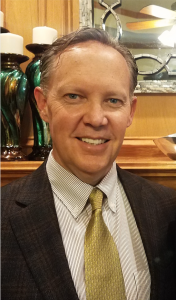
We recognized Clovis Community College for offering one of Top Associate’s Degree Programs in Paralegal Studies, adding them to our list of top recommendations for students in the area.
We were excited to hear from Rick Rowley, Priscilla Murray and Laura Talbert, faculty members at Clovis Community College, who took the time to answer a few questions about how the school works to create a great student experience that helps prepare graduates for a career in the legal field.
Are you finding a lot of career changers in your program looking to get their start in the legal profession?
Rick: Don’t know
Paralegals are really getting the respect they deserve these days, and taking on more and more responsibilities on the job. How is this changing the approach to educating new paralegals?
Rick: Not really sure. I have always used an approach that gives students the respect they deserve.
Does the program at your school include an internship and are faculty available to help students find one?
Rick: No, internships are not included, but I am always willing to help students find jobs in my area.
What are some of the things you love most about the paralegal program at your school – the kind of things you’d like future students to know about as they consider their options?
Rick: I believe they get a great online education at Clovis Community College. We care about providing our students with an education that gives them knowledge that they can apply in very practical ways.
Clovis Community College Interview (Priscilla Murray)
Are you finding a lot of career changers in your program looking to get their start in the legal profession?
Priscilla: The Paralegal field has really grown in the last decade. Firms are seeing the great benefit of processing more cases, by employing a fully capable and knowledgeable paralegal rather than a secretary with limited duties. As such, the paralegal program alone has grown and will continue to grow.
Paralegals are really getting the respect they deserve these days, and taking on more and more responsibilities on the job. How is this changing the approach to educating new paralegals?
Priscilla: This greatly changes the approach of educating our future paralegals. As professors we want our students to graduate and know how to apply the material. We wish to provide employers with knowledgeable paralegals, whom can easily satisfy administrative function in additions to more focus legal duties. As such, many courses will include hands on type assignments and not just textbook regurgitation.
Does the program at your school include an internship and are faculty available to help students find one?
Priscilla: At this time CCC does not offer an internship, however we do go above our call and provide references, feedback, and recommendations for our excelling students. Additionally, often local firms will see CCC assistance in filling paralegal/legal assistant vacancies.
What are some of the things you love most about the paralegal program at your school – the kind of things you’d like future students to know about as they consider their options?
Priscilla: I would like students to know that at CCC, our legal program will provide them with a basic knowledge to enter the legal field. We will provide a solid foundation, should they wish to later enhance and pursue a graduate degree. A paralegal degree or certificate, can also be used to enrich a business degree or begin a criminal justice degree.
Clovis Community College Interview (Laura Talbert)
Are you finding a lot of career changers in your program looking to get their start in the legal profession?
Laura: I am an adjunct professor, so, personally, I do not see a lot of career changes to get started in paralegal studies. That being said, I am aware of a significant shift in individuals going back to school to get started in the legal profession.
Paralegals are really getting the respect they deserve these days, and taking on more and more responsibilities on the job. How is this changing the approach to educating new paralegals?
Laura: It requires more knowledge in drafting legal documents and, without crossing the line of practicing law, the skillset to be an attorney’s right hand.
Does the program at your school include an internship and are faculty available to help students find one?
Laura: Faculty is always available to help students find internships!
What are some of the things you love most about the paralegal program at your school – the kind of things you’d like future students to know about as they consider their options?
Laura: I love how personal our paralegal program is. While I teach online courses, I still encourage students to reach out to me with any questions or concerns that they have. As a practicing attorney, I am well aware of what a good paralegal is capable of and I know our program is providing the type of education that results in great paralegals.
Check out our full interview series here to see what other professors and faculty are saying about their paralegal programs.







